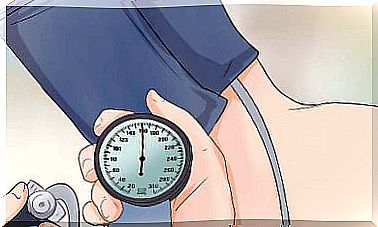Everything You Need To Know About Prednisolone

Prednisolone is a corticosteroid that exerts an anti-inflammatory effect that has a medium duration.
Prednisolone, as we have said, is a corticosteroid, and corticosteroids are hormones that our body produces in various glands, such as the pancreas, thyroid gland, testicles, ovaries and adrenal glands. It is in the adrenal glands that corticosteroids are produced.
What do doctors prescribe prednisolone for?
Prednisolone is widely used in the treatment of children. Most often, doctors prescribe it for the following health problems:
- Bronchitis or asthmatic seizures.
- Laryngitis.
- Atopic dermatitis: When the outbreaks are moderate to severe.
- Allergic conditions.
The duration of treatment with this medication varies depending on the degree of the disorder and depends on each case. Similarly, it is best to use prednisolone for the shortest possible time to achieve the desired result.
It is important to keep in mind that this medicine takes about 4 hours to take effect, so you should wait at least 8 hours between one dose and the next. By doing so, it is possible to reach the half-life of prednisolone in the blood, producing the desired effect.
How is prednisolone taken?

Although doctors prescribe the dosage of prednisolone based on each patient , the maximum daily dose is 40 milligrams a day.
The treatment usually involves two doses a day, every 12 hours, and you can mix them with milk or juice to make them easier to get down.
What are the side effects of prednisolone?
When patients take prednisolone for less than 10 days, the risk of side effects is low. In general, the most common side effects are increased appetite and restlessness.
Although there are almost no side effects when the treatment is short-lived, as in the case of bronchitis, laryngitis or atopic dermatitis, there should be medical control when the treatments are longer. This is because the side effects that may occur may be more significant.
These side effects include the following:
- Increase in blood glucose levels.
- Fluid retention.
- The appearance of stretch marks or acne.
- Scarring problems.
When should you not take prednisolone?
Experts warn against taking this drug if you are allergic to prednisolone. The same is true if you are suffering from a viral disease as prednisolone can worsen the symptoms.
When you need to vaccinate your child, it is best that they are not treated with prednisolone two months before vaccination. If for any reason the vaccination coincides with the prednisolone treatment, you should contact your doctor.
With regard to vaccines and prednisolone, it is also important to take into account that at least 2 weeks must elapse between the date of vaccination and the start of treatment with this medicine.

How to stop taking this medicine?
Since it is a corticosteroid, you should never stop taking it suddenly, especially not if you have been using it for a long period of time. Among the reasons why treatment should not stop abruptly are the possible sudden drops in glucose levels and blood pressure.
Sudden cessation of treatment with this drug can also affect the production of the adrenal glands, as an oral intake of corticosteroid competes with the hormones that the body produces.
When treatment is stopped abruptly, the body suddenly suffers a drop in the level of corticosteroids, which can alter all vital functions. For this reason, you should gradually reduce the doses and give the body time to gradually adapt to the hormonal changes.
Short-term use of corticosteroid
Prednisolone is a corticosteroid that should be used for short-term treatments. That way, it does not cause any serious side effects. Completing the treatment as prescribed and following the doses recommended by a doctor is the best guarantee of good health.









